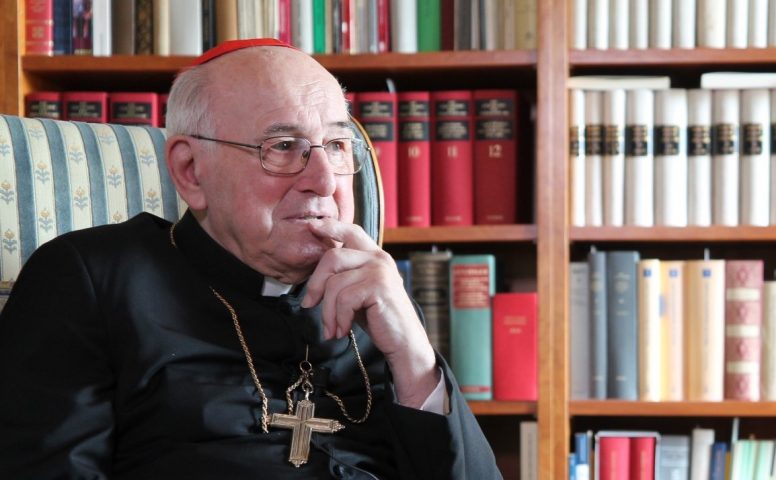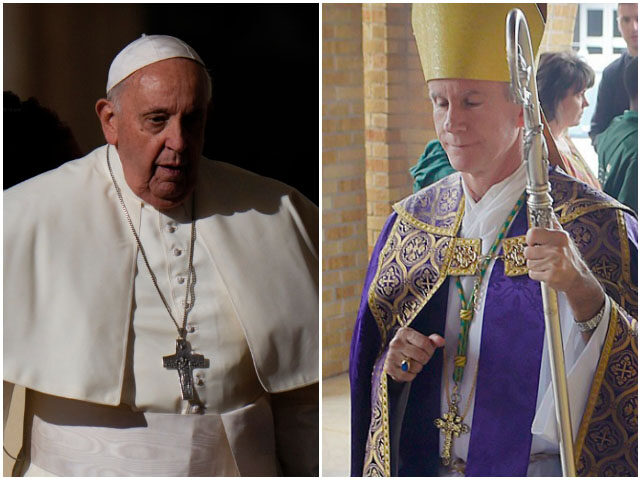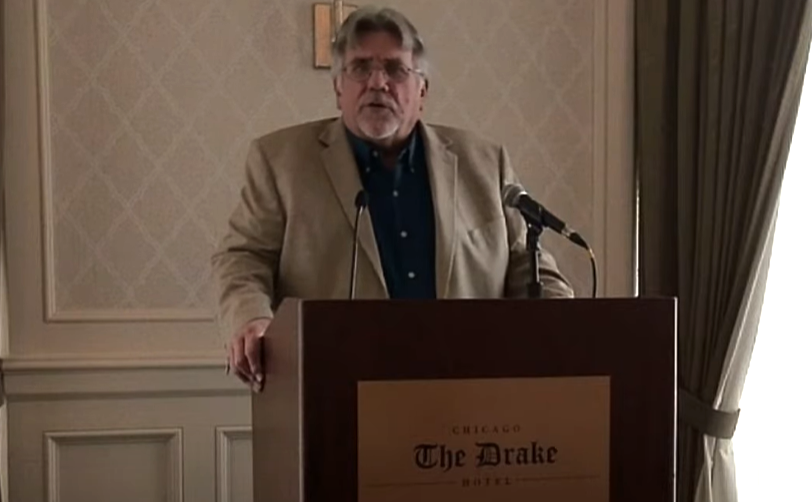Synod Doc is ‘Attack on the Foundations of the Faith,’ says Cardinal, by Edward Pentin

Reaching Past Dementia Through Music, by Msgr. Charles Pope
June 28, 2019
Founder’s Quote
June 29, 2019
Cardinal Walter Brandmüller
The instrumentum laboris “constitutes an attack on the foundations of the faith” in a way not thought possible before, says Cardinal Walter Brandmüller
By Edward Pentin, National Catholic Register, 6/27/19
Cardinal Walter Brandmüller has firmly criticized the working document of the upcoming Amazonian Synod, saying “decisive points” are “heretical” and that it constitutes an “attack on the foundations of the faith.”
In a June 27 commentary the president emeritus of the Pontifical Committee for Historical Sciences also said the document “burdens” the Synod of Bishops with a “grave breach” of the deposit of faith which he believes will either result in the Church’s “self-destruction,” or reduce her to a “secular NGO with an ecological-social-psychological mandate.”
The German cardinal began his critique, published jointly at LifeSiteNews and Kathnet, by calling it “truly astonishing” that the synod, which takes place in Rome Oct. 6-27, deals exclusively with a region whose population is “just half that of Mexico City.”
He added this leads to “suspicion concerning the true intentions” of the synod, “which are to be implemented in a clandestine fashion.” He also questioned the “understanding of religion, of Christianity, and of the Church” given the basis of the working document, called an instrumentum laboris, published June 17.
Three-quarters of the lengthy text, he said, have “very little to do with the Gospels and the Church,” and he asserted it makes an “aggressive intrusion” into Brazil’s world and state affairs. “What do ecology, economy, and politics have to do with the mandate and mission of the Church?” he asked, and queried what “professional expertise” the synodal bishops have to make such statements.
Cardinal Brandmüller then took to task the document’s “very positive assessment of natural religions,” saying it not only represents the discredited “ideal of the ‘noble savage’” presented by the 18th-century French philosopher Jean-Jacques Rousseau, but “goes further,” promoting a “pantheistic idolatry of nature.”
It is an ideology close to one favored by the National Socialists and reminiscent of a text found in a Hitler Youth textbook, he said, and characterized it as an “anti-rational rejection of ‘western’ culture,” one that speaks of “Mother Earth” and the “cry of the earth and of the peoples.”
He also denounced the idea found in the working document that the Amazonian territory is a “special source of Divine Revelation” and argued that it elevates “natural religion with a Christian masquerade.” The notion of inculturation is “perverted in the document,” he said, and is the “opposite” of what the Vatican and the Second Vatican Council have taught.
Turning to the abolition of priestly celibacy and ordination of women as priests, he said the synod “especially intends” to help implement them. Quoting passages to buttress this assertion, he noted that the document omits Pope St. John Paul II’s definitive teaching that it is not in the Church’s power to ordain women.
This demonstrates, the cardinal said, that the “Church” is being used as a “sociological term” by the working document’s authors, thus “implicitly denying the sacramental hierarchical character of the Church.”
A “direct attack” on this character can be found in paragraph no. 127, he added, which asks that the “exercise of jurisdiction (power of government)” and its link with all areas, sacramental, judicial, administrative, be reconsidered in a “permanent way” to Holy Orders.
He ascribes this passage to a “falsely understood inculturation” where certain forms of “natural religions are positively adopted.” Such inculturation, he said, “does not correspond” to the Second Vatican Council constitutions on the liturgy and missionary activity, but rather “shows a purely horizontal understanding of liturgy.”
In conclusion, he expressed concern that the document represented a “grave breach with the depositum fidei” which if approved would mean the Church’s self-destruction or the “change of the Corpus Christi mysticum into a secular NGO.”
He also asked if the authors intended a decisive breach with apostolic tradition or wished to favor a “development of doctrine.”
Cardinal Brandmüller suspected it was the former, and asserted we are “witnessing a new form of the classical Modernism of the early 20th century.”
But such an understanding of development is “sharply opposed” to “genuine” Catholic understanding, he said, adding that it “is to be emphatically stated that the instrumentum laboris contradicts the binding teaching of the Church on decisive points, and is therefore to be qualified as heretical.”
“Inasmuch as even the fact of Divine Revelation is here being questioned, or misunderstood, one also now has to speak, additionally, of apostasy,” he added.
The document uses “a purely immanentist notion of religion” he said, and that Christian words and notions are used “as empty words.”
The instrumentum laboris “constitutes an attack on the foundations of the faith” in a way not thought possible before, he concluded.
“It must therefore be firmly and decidedly rejected,” Cardinal Brandmüller said.




